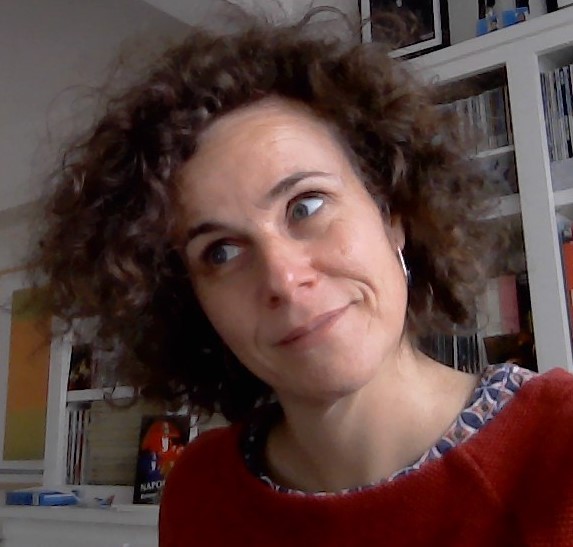● For subtitlers, literary translators and conference interpreters, innovations in AI have raised many questions about the future, and in particular with regard to the economic model of their professions.
● The integration of these artificial intelligence technologies could result in distorted translations, dumbed down languages and, worse still, cultural impoverishment.
In late 2022, ahead of the launch of a new French video streaming service, an announcement by the service’s captions provider to the effect that it intended to use AI to automate the production of subtitles provoked an outcry among film and TV translators. The plan was ultimately dropped, notably in the light of a press release issued by the Association of audio-visual translators/adapters (ATAA: in French). “In dialogue, people use non-verbal phrases, they may speak hesitantly, and they also interrupt each other. Our job is to adapt dialogues and speech, which are difficult to transcribe automatically. For example, AIs are not able to cope with idiomatic expressions and puns,” points out Stéphanie Penot-Lenoir, associate secretary of the ATAA. “On a technical level,” she adds, “we also have to decide when subtitles appear and disappear, so as to ensure that their presence onscreen remains as discreet as possible, which involves a lot of summarizing”. Will artificial intelligence technologies be able to replace human subtitlers at some point in the future? Her answer to this question is quite sophisticated: “It would require a machine that has been trained to recognize the speed of speech, which can also produce accurate translation, and another system to ensure that the text of what is said is chopped up correctly”. In short, it is not possible to produce quality work without human intervention. “And for translators, revising text produced by an AI requires more time than working directly with the original video.”
On ChatGPT, language tends to be standardized, which means that we may be heading towards a uniformization of style, that could impoverish our linguistic cultures
A worry for literary translators
The outlook for literary translators is less reassuring. Publishing houses are already planning on using AI systems to produce and translate content. “I think publishers will definitely jump on the bandwagon; however, it remains to be seen if consumers will buy works that are explicitly labelled as produced by AI. The issue of AI has arisen at a time when the profession is already under pressure from falling pay rates”, explains Peggy Rolland, the secretary of the Association of literary translators in France (ATLF: in French). “Today, publishers are either wary of speaking about it or they are completely silent on this issue. I think that unfortunately machines will eventually produce results that are sufficient to give credit to the illusion that human intervention should be limited to post-editing. Given that we are paid in royalties, the question is: who will be credited as the author of these translations? We are faced with an accelerated form of uberization, which is also an issue in many other fields”.
Dumbing down the French language
Given that AI translation tools are based on statistics, their use results in a de facto impoverishment of language. “Algorithms are not able to make certain choices, or to translate humour”, points out Peggy Rolland. With ChatGPT, we can already see language that tends to be standardized, which means that we may be heading towards a uniformization of style, that could impoverish our linguistic cultures. “In the long term, this could pave the way for the effacement of distinct cultural characteristics and literary content that tends to satisfy standard expectations much like the options based on your profile presented by the algorithm on Netflix. The risk is that publishers will only focus on the potential for success of the books they choose to publish and/or translate”.
What about interpreters?
Another group in the translation professions, interpreters are also concerned by rapidly developing technologies in speech recognition and translation. The question is: will we soon see the emergence of simultaneous oral translation tools? However, interpreting represents a much greater challenge for AI: “It could only work for very widely spoken languages for which there are very extensive corpora,” points out Camille Mercier-Sanders, president of the French branch of the International Association of Conference Interpreters (AIIC). “Workflows in these systems always have to pass through English, that is to say, to translate from Spanish to German, they first have to translate from Spanish to English and then from English to German.” At the same time, they have to go from speech to text and then from text to speech. “This requires time and the risk of distortion is too high,” explains Camille Mercier-Sanders. And notwithstanding recent progress in the field of computer-generated voices, listeners would have to make do with much reduced level of comfort. Added to this, there is another major problem: international conferences that call on interpreters are often very solemn occasions with major political and diplomatic implications. “AI systems do not apprehend emotional references like humans, however, there is a lot of emotional involvement in the speeches.” Like their colleagues working in subtitling, interpreters have to streamline speech, and ignore pauses and false starts; all tasks that are beyond the scope of today’s algorithms.
Read more :
IA et traduction littéraire : les traductrices et traducteurs exigent la transparence (in French)
 Stéphanie Penot-Lenoir
Stéphanie Penot-Lenoir
 Peggy Rolland
Peggy Rolland
 Camille Mercier-Sanders
Camille Mercier-Sanders











